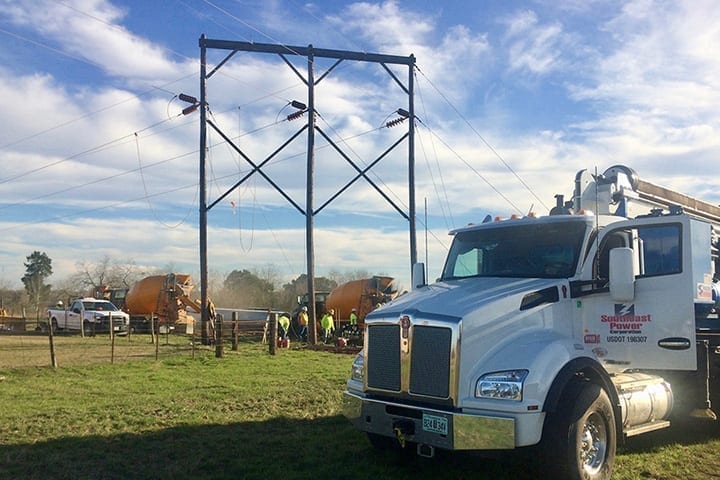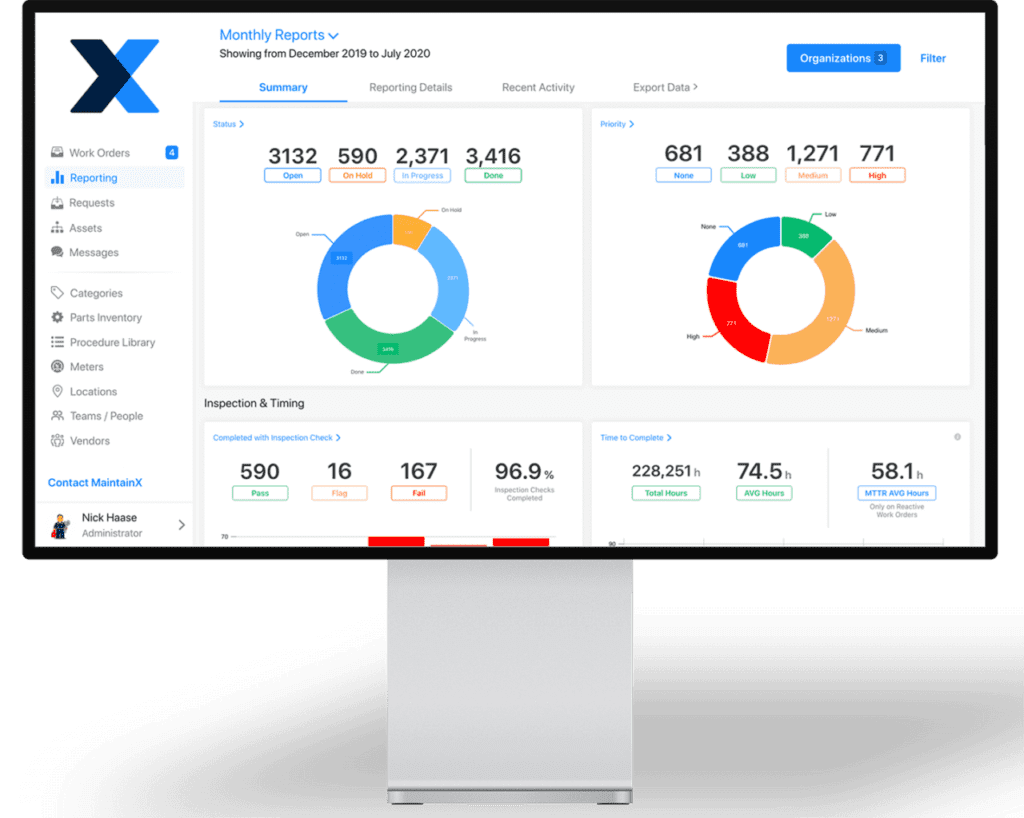4 Ways Southeast Power’s Fleet Team Has Leveled-Up Since COVID-19
The post 4 Ways Southeast Power's Fleet Team Has Leveled-Up Since COVID-19 appeared first on POWER Magazine.

Things keep going," Brent Tomamichel, fleet manager of Southeast Power (Figure 1), said when asked to describe the current state of the power industry. Our industry is unique in that way; no matter what is happening in the world, everyone needs and wants their power on."
 1. Among other things, Southeast Power is capable of performing transmission line construction and maintenance ranging from 46 kV to 500 kV. Courtesy: Southeast Power
1. Among other things, Southeast Power is capable of performing transmission line construction and maintenance ranging from 46 kV to 500 kV. Courtesy: Southeast PowerIf you're one of the more than 1.9 million people in jobs related to electric power generation and fuels, you've seen the evidence firsthand. Over the past several months, folks from all walks of life have begun to understand the difference between essential and non-essential businesses.
Since March, cities, states, and nations have mandated nonessential business shutdowns to curb COVID-19. Though there isn't a strict consensus as to what exactly constitutes an essential business," there is no disagreement over the necessity of electricity. The power industry quite literally fuels every essential business within the supply chain: Banks, grocery stores, medical facilities, gas stations, laundry services, police stations, and more all depend on providers like Southeast Power to continue serving customers day in and day out.
However, COVID-19 has significantly impacted the power sector, resulting in supply chain disruptions, construction delays, labor constraints, financial challenges, and restrictions on business activities. Recently, Tomamichel explained how the global pandemic has impacted his team. Four tips from the conversation are presented in this article that could help other power and fleet managers streamline their operations and level-up during this challenging time.
Digitize Extraneous ProcessesOne of Tomamichel's primary focuses post-COVID has been on digitization. Though he already knew his department could be more efficient, recent circumstances have pushed him to further streamline processes for work order management, asset documentation, and team communication.
Lately, I've been thinking a lot about my role as a fleet manager and what I need to succeed," Tomamichel said. I've had some conversations with a senior manager here who is really good at cutting the fat. It's important for any manager, but especially in an industry like ours where logistics is, quite frankly, not really logistics at all-it's organized chaos."
Even power departments with exceptionally diligent preventive maintenance programs will sometimes find themselves in reactive mode. Put simply, there is almost never a good time for power to be down, and customers expect immediate resolutions to complaints.
As reported by Entrepreneur, a 2019 survey of more than a thousand companies in the European Union and U.S. found that many fleet managers considered lost productivity due to manual task management to be their biggest challenge. At least 40% of fleet managers claimed their teams spent extra hours each week quoting and invoicing, identifying and dispatching workers, and managing expenses.
Tomamichel said he experimented with several different work order software platforms (Figure 2) before deciding on a mobile app that was powerful, but easy enough for everyone to use without training.
 2. MaintainX helps users track maintenance and control daily operations such as safety inspections, quality inspections, and operating checklists-all with a digital audit trail. Courtesy: MaintainX
2. MaintainX helps users track maintenance and control daily operations such as safety inspections, quality inspections, and operating checklists-all with a digital audit trail. Courtesy: MaintainXBeing able to pull a small device out of my pocket during a budget meeting and respond to the question, How much money are we spending on this particular asset?' has been invaluable," he said. I can say in 2020, we spent X amount on cranes-that is invaluable. It's like having a file cabinet in your pocket."
Furthermore, Tomamichel is using the technology to encourage his mechanics to become more self-sufficient. When team members call him asking for information regarding a particular asset, he reminds them to check their smartphones. They now have access to the historical data they need to make good maintenance decisions. This small change has freed Tomamichel's daily schedule from unnecessary interruptions to focus on more high-value activities.
Streamline CommunicationIn the midst of ever-changing government legislation and safety recommendations, real-time communication has never been more critical. Power teams can benefit from maintaining a single channel of reliable communication that allows both individuals and groups to remain in contact with each other throughout the workday.
In the past, Tomamichel's team simultaneously relied on emails, voicemails, and text messages. Not only did this scattered communication system cause Tomamichel to feel on guard" for fear of missing time-sensitive information, but it also caused important details to sometimes fall through the cracks.
For example, say a technician calls and leaves a voice message saying he found a distribution fuse in need of replacement and that it shouldn't take longer than a few minutes to remedy. However, he investigates further and then sends an email saying he was incorrect. Instead, a transformer needs to be replaced and he has some specific questions that need to be answered before he can proceed. It would be quite easy for Tomamichel to assume that the voicemail had time-sensitive information and overlook the email for several hours. This is just one example of many types of delays that result from scattered messages.
The fleet manager recommends utilizing a connected-workforce platform that allows managers to chat with team members within individual threads, group threads, and even directly within work orders. Popular business chat apps include Slack, Lua, and MaintainX. These types of messaging apps also allow managers to upload and quickly distribute important documents, policy updates, and PDFs that can be quickly referenced by employees.
Gather Feedback Regarding Tasks and PoliciesBecause Southeast Power's fleet team is not customer facing, Tomamichel hasn't made dramatic modifications to safety standard operating procedures since COVID. Most plant administrators are working from home, and crew members are following updated safety and sanitation guidelines. Despite not being as integrated with his team, Tomamichel emphasized the importance of letting his technicians know that he is always available for feedback, questions, and concerns.
Ask [team members] what they feel needs improvement," he said. Do they have issues related to your tasks? Keep an open mind in terms of questioning yourself and the processes under your charge."
Tomamichel said a fleet department's biggest systems improvements often come from the ideas expressed by technicians on the ground. Managers should stay flexible when it comes to worker suggestions regarding processes, protocols, and checklists. Asking for feedback from both subordinates and upper-management is important. Both constructive feedback and positive reinforcement are useful to everyone from top to bottom.
Don't Procrastinate on Daily TasksDon't procrastinate. It may sound like simple advice, but how do you actually put the moniker into practice? Tomamichel said that not letting tasks stack up has been his most significant professional challenge as a fleet manager.
You take a couple of lax days, and stuff comes down on your head," he said. I know someone who is driven by that [kind of] pressure. They let things mount up, feel the pressure, and get stuff done. But that has never worked for me. I stay proactive."
Procrastination is a universal experience. However, identifying one's reasons for procrastinating, and taking actions to change longstanding behaviors often requires some self-discovery.
Commonly listed reasons for procrastination include not knowing where to begin, fearing failure, and merely disliking the task. If you have team members who routinely procrastinate, their reasons for doing so might be completely individualistic. However, one of the most helpful things management can do to reduce the mental gymnastics involved in task delays is to provide clear assignment instructions in conjunction with accountability measures. The easiest way to accomplish this goal is through the use of digital checklists that illustrate real-time compliance and task-completion.
You don't want to have to call a technician to find out what's going on," Tomamichel said. Ideally, you want the peace of mind of opening an app and seeing exactly what stage that work order is in. If the assignment hasn't been updated to In Progress,' he hasn't started yet. If the assignment is still In Progress' hours later, you can call and find out what's happening."
Keep Calm-Maintenance OnUndoubtedly, these are strange times. However, putting dependable work order and communication systems in place can relieve unnecessary stress, confusion, and miscommunication.
Like most power outlets, Southeast Power is currently experiencing its slow season. Major preventive tasks won't ramp up until cooler temperatures arrive in the fall. Now is an ideal time for plant managers to assess current work order systems, digitize processes, and streamline communication to prepare for intense maintenance periods to come.
-Ashley Gwilliam is a content creator for MaintainX, a task-management and standard operating procedure system with integrated instant messaging, work order commenting, and compliance checklists.
The post 4 Ways Southeast Power's Fleet Team Has Leveled-Up Since COVID-19 appeared first on POWER Magazine.